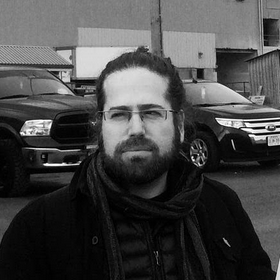
Blockchains and their derivative technologies are often considered to be the foundation for a decentralised future. Whether it acts as a "permanent" digital ledger that promises to evade state censorship, or as a network that provides creatives opportunities to bypass institutional gatekeeping, what will the future of blockchains be like? Will Arweave protocols and NFTs pave the way for a future where history and power are shared, rather than owned by the elite?
This series brings together technologists, artists, curators, and a start-up as they unpack how blockchain technologies aspire to shape a fairer world, and consider the role that public institutions - like museums - can play in this emergent world. Catch them on Y-Lab (National Gallery Singapore)'s YouTube Live.
Time: May 19 8-9.30PM (Online), May 22 8-9.30PM (Online), May 27 2-5PM (Limited capacity, on-site)
At its core, blockchain technologies are a way of keeping public records of information. How do blockchain technologies decentralise power? How can they reconfigure the social and political relations that define the ways we see ourselves as a society, and as an international community? How can we sustainably create and preserve autonomous records, and what will this mean for the way history is written from now on?”

Sam Williams is CEO of the company that created the Arweave protocol, a permanent archive of human knowledge and experiences on a blockchain. Sam is passionate about building innovative software, solving complex problems in distributed computer networking and has extensive experience in real-world mechanism design and implementation. Besides his activities at Arweave, Sam actively participates in the decentralized web space as technical advisor and mentor of blockchain projects.

Frances Liddell is a researcher, writer, and advisor working at the intersection of cultural institutions, arts and Web3. Working in partnership with the National Museums Liverpool and the University of Manchester, her PhD research explored the application of blockchain (specifically Non-Fungible Tokens, (NFTs)) in museum audience engagement practices and considered how this technology supports and/or disrupts concepts such as digital ownership, guardianship, authority, authenticity, and value. She utilises her knowledge from this work to provide support and guidance to cultural organisations exploring NFTs and Web3 through a values-led approach. Her current interests focus on exploring the themes of Web3 to critically unpack questions around decolonisation, reciprocation, and intellectual property. She has previously written for peer-review publications such as Museum & Society, and media such as Flash Art, Art Quarterly, Artnome, and Cultural Practices
For some artists, NFTs are a way to find new communities and audiences that sustain their practices, while also bypassing traditional institutional gatekeepers. Max Haiven coined the term ‘revenge capitalism’ to refer to capitalist accumulation that grows out of colonial structures and which is ultimately a form of self-destructive vengeance. Yet, in a time of ecological crisis, NFTs also carry with them an exorbitant cost. Are NFTs a form of revenge capitalism? And at what cost?
This panel brings together Max Haiven and artists and curators to consider whether NFTs can produce new digital alliances and collectives to address longstanding issues of inequality in the art world. Can these groups lead to new forms of collaboration, and will they be able to tackle some of the most complex issues we face as a planet?

Max Haiven is a writer and teacher and Canada Research Chair in the Radical Imagination. His most recent books are *Palm Oil: The Grease of Empire* (2022), Revenge Capitalism: The Ghosts of Empire, the Demons of Capital, and the Settling of Unpayable Debts (2020) and *Art after Money, Money after Art: Creative Strategies Against Financialization (2018).* Haiven is editor of VAGABONDS, a series of short, radical books from Pluto Press. He teaches at Lakehead University, where he co-directs the ReImagining Value Action Lab (RiVAL).

Chris Fussner is a Filipino-American designer based primarily in Milan, Italy. He is constantly looking for new ideas, models, practice and communication related to the tropics. He is also interested in crafting and supporting the diffusion of new narratives around the climatic and geographic space that wraps around the world and connects various ecologies and peoples. Fussner graduated from the School of Design Strategies at Parsons School of Design.

Kenza Zouari (1994) is a curator, collector and NFT art specialist. She is part of the Cyber Baat DAO aiming at increasing the representation of artists of African descent in the NFT space as well as in the traditional art world. She also is the community builder of the curated marketplace Institut and co-owns a creative agency called Local Groupe, based in Tunis, Tunisia through which she and her partner produce art exhibitions and publish art books and editions.